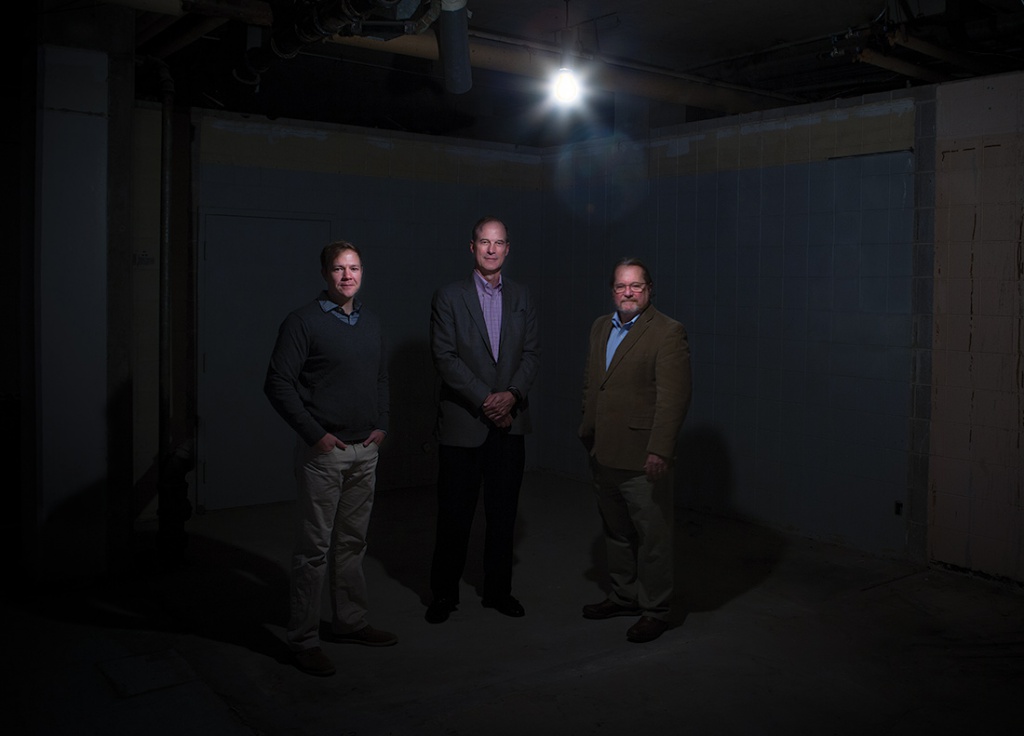
Business With Purpose
Westminster’s Social Impact Incubator is changing the future for good
by Audrey Maynard (’03)
Seeking both purpose and profit is a relatively new concept in today’s marketplace. As the US economy has evolved through the agrarian, industrial, and information ages, a new wave of social consciousness is transforming how companies do business—from the smallest start-ups to the largest corporations. This “purpose economy” is a response to people’s growing desire to find meaning and fulfillment in their work, as well as to choose goods and services from ethical, responsible, and philanthropic businesses.
One reason for this sea of change is the influx of millennials influencing the marketplace. The millennial generation—some 80 million Americans born between 1980 and 2000—is the largest living generation in the United States. Characterized as confident, collaborative, and socially engaged, today’s millennials are changing the corporate landscape of the boomer generation, often seeking opportunities that allow them to chart their own professional course.
Westminster is harnessing this generation’s entrepreneurial ethos through initiatives that infuse entrepreneurism into the curriculum. A minor in entrepreneurship—an option available to all undergraduate students—is off the ground, and this January, the college opened its doors to a new Social Impact Incubator for student-run companies whose mission is to provide a social good.
The Social Impact Incubator, founded by Intuitive Funding, is tucked into a 750-square-foot space two blocks off campus, which has been provided by Ned Skanchy (MBA ’12), president of Urban Hive Properties. The Center for Entrepreneurship is partnering with investment firm Intuitive Funding to provide mentoring, advising, and funding resources for up to five three-member student businesses.
“We’re looking for students who are serious about starting for-profit or nonprofit businesses that make a difference in the world,” says Cliff Hurst, assistant professor of management. Hurst, with his colleague Karin Palle, director of the Center for Entrepreneurship, will work with an advisory board to select student businesses to participate in the incubator, with the goal of expanding services to alumni and community businesses.
Discussion around the Social Impact Incubator began a year ago when Intuitive Funding, founded and managed by Tom Thatcher, was pitched to back a business-incubator concept at the college. Westminster’s approach is different from the intensive, boot-camp approach of other business accelerators in that students will receive support for as long as they need if they demonstrate genuine progress in preparing their businesses to enter the marketplace.
“Entrepreneurs can’t do it alone because they need a place to foster ideas with people who can help them along,” says Tom. “The incubator model is more attractive to me because we are going to take the time to foster ideas, test them in the market, and see how workable they are.”
Intuitive Funding has entered an agreement with the college to fund the Social Impact Incubator for the next five years. The primary goal is to help student-run businesses scale for the marketplace, but as its own nascent enterprise, the incubator will also need to become self-sustaining by attracting additional investors.
“We have five years to develop and test our model, and we hope we’re busting at the seams,” says Cliff. “We’re going to make some wrong turns, but in five years I hope we have a demonstrated model of incubating social start-ups that will attract additional funding to scale and enlarge this idea.”
Tom thinks that Westminster could be on the leading edge of a niche concept for business incubators—one that prioritizes a benefit to society over profit margins.
“When you focus on the social problem, you’re not worried about the profit. That’s what makes this so exciting.” he says. We’re not worried about profits; we’re worried about solving problems. It’s going to be a lot harder, but it’s a lot more rewarding.”
For Cliff, embarking on an endeavor that aligns so seamlessly with the college’s mission of preparing students to lead meaningful lives is exciting. He looks forward to working closely with Tom in sharing what they’ve learned over decades in the corporate world to help the next generation of business leaders create a more equitable and sustainable future.
“You don’t have to wait until you’ve made a lot of money doing something that may destroy the earth and the air, and then go give back,” Cliff says. “If you can find a way to do good now and make a living while doing it, you’re choosing to give back the whole time.”
The Social Impact Incubator is seeking volunteers to help mentor student participants. For more information, contact Cliff Hurst at 801.832.2649 or churst@westminsteru.edu.
About the Westminster Review
The Westminster Review is Westminster University’s bi-annual alumni magazine that is distributed to alumni and community members. Each issue aims to keep alumni updated on campus current events and highlights the accomplishments of current students, professors, and Westminster alum.
GET THE REVIEW IN PRINT STAY IN TOUCH SUBMIT YOUR STORY IDEA READ MORE WESTMINSTER STORIES
